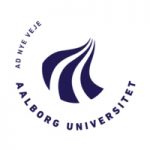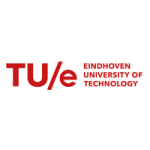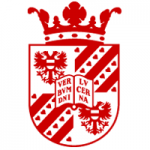
PhD in tourist destination development
项目介绍
Job description
Research context
The PhD student will contribute to the research project CROCUS(Cross-border Cultural and Creative Tourism in Rural and Remote Areas) sponsored by the Horizon Europe programme of the European Union and coordinated by Aalborg University.
CROCUS will study Rural and remote areas(RRA) which are rich in cultural heritage, but also often suffer from socio-economic problems such as an aging population, out-migration, and low incomes. Cultural and creative tourism(CCT) could help address these problems by creating sustainable jobs and investment, and the project will investigate three main issues:(1) how to develop place-specific business models that suit different types of cultural heritage and community needs;(2) how to ensure that tourism development is balanced and sustainable;(3) how to ensure that policies at different scales support cooperation between RRA.
During the project eight cross-border living labs will be established in different parts of Europe by the project partners. The living labs will prototype sustainable CCT business. In addition, the project will develop macro-regional and cross-border policy scenarios for each of the four EU macro-regions(Baltic Sea, Adriatic and Ionian, Alpine, and Danube). It will also create tools and resources that RRA across Europe and beyond can use to develop sustainable and inclusive CCT in the future.
CROCUS PhD research
The PhD project is expected to contribute to CROCUS by undertaking research in at least one case study areas, focusing on selected cultural resources that can potentially contribute to sustainable development in RRAs. One of the case studies will form part of Aalborg University’s contribution to the overall European project design and will therefore be undertaken in the border region between Denmark and Germany, most likely with a focus on cultural events. The other case study will be selected by the doctoral student in consultation with the Aalborg University research team: it could either be based around a similar cultural resource in a border-region elsewhere in Europe, or focus on the role of cultural events in tourist destination development in another part of Denmark.
The PhD study is expected to engage with the conceptual and methodological frameworks developed as part of CROCUS. The PhD candidate is expected to assist with establishing living lab, follow its progress, and collect quantitative and qualitative data designed as part of the CROCUS project. Within this framework the PhD candidate is expected to develop their own research project, focusing on one of the following aspects of sustainable development of cultural and creative tourism in RRAs:
- business model innovation
- tourism policy and governance
- destination development and placemaking
The position
PhD stipends are for a period of 3 years. The PhD Fellow will be affiliated with the RECAST research group at the Department of Culture and Learning, and will take part in the wider European research community with the CROCUS project. The teaching obligations of the PhD Fellow will take place at the department’s Bachelor and Master programs, especially the MA in Tourism. According to the Ministerial PhD Order, the PhD study also requires participation in active international research environments, including stays at other, mainly foreign, research institutions. CROCUS is based at the Aalborg Campus of the university, and physical presence will be expected at least three days every week. We offer a good working environment, aiming to make room for individual professional development while at the same time valuing commitment of individual researchers to the larger community.
Qualification requirements
PhD stipends are allocated to individuals who hold a relevant Master’s degree. Applicants must demonstrate scientific and communicative skills, be a good team player, and have experience with qualitative research methods. Command of English and a Scandinavian language is required, knowledge of German will be an advantage but not a prerequisite.
General information
It is a prerequisite for allocation of the stipend that the candidate will be enrolled as a PhD student at The Doctoral School of Social Sciences and Humanities, in accordance with the regulations of Ministerial Order No. 1039 of 27 August 2013(PhD Order).
Application
Please visit thewebsite of the doctoral school for further information on the PhD programme, application procedure, and admission requirements.
To be considered for the position, the application mustbe written in English and contain the following:
- Application form(downloadhere)
- An application that describes your motivation for applying for the position(max 2 pages),
- Project description of maximum 5 pages. The project description must include an introduction with project title, research questions, a short state-of-the-art within the research field, a short description of the project’s methodological approach and proposed theoretical framework.
- Copy of diplomas/transcripts
- Curriculum vitae(CV)
- List of written work(optional)
- Sample of written work, e.g. Master’s thesis(optional)
- Applicants who are planning to complete a doctoral thesis in English and who do not have English as a first language or who have not completed an English language-based Master’s programme(or an equivalent educational achievement in English) must provide documentation that they have passed one of the following official tests with the respective minimum score: IELTS(band score): 7, TOEFL(paper-based): 600, TOEFL(internet-based): 100. The language test must be no more than five years old at the time of the application.
The applicant’s overall qualifications are assessed by an assessment committee. Shortlisting is used. This means that after the application deadline, the head of department, with the assistance of the chairman of the assessment committee, selects the candidates to be assessed. All applicants will be informed whether they have selected for assessment or not. Once the recruitment process is complete, a final rejection will be sent to the applicants who will not be considered for the position.
The application can only be submitted by using the link on AAU’s job-portalhttps://www.stillinger.aau.dk/(not other online job portals that may have reposted the position). Please note that zipped files are not supported by the recruitment system, please upload only Word or PDF files.
Contact
For further information about the department’s research profile, please refer to the websiteen.culture.aau.dk- Aalborg University
Questions about the scholarship can be asked via email to Associate Professor Laura James,leja@ikl.aau.dk
For general information about the application process etc., please contact Lene Møller/ Vigdis Skomager-Bohnfeldt, e-mail:lml@adm.aau.dk/vkns@adm.aau.dk, phone:+45 9940 9658/+45 9940 7408.
Wages and employment
Appointment and salary as a PhD fellow are according to the Ministry of Finance Circular of 15 December 2021, on the Collective Agreement for Academics in Denmark, Appendix 5, regarding PhD fellows, and with the current Circular on the employment structure at Danish Universities. AAU wishes to reflect the diversity of society and welcomes applications from all qualified candidates regardless of personal background or belief.
Ref number
2023-224-05695
Deadline
12.02.2024
相关项目推荐
KD博士实时收录全球顶尖院校的博士项目,总有一个项目等着你!




